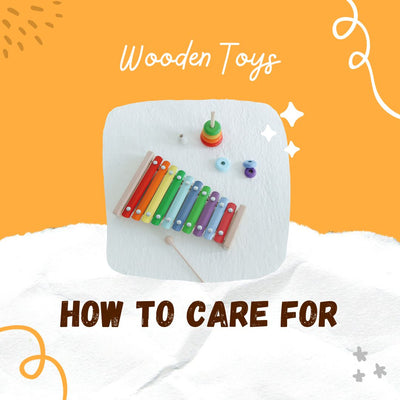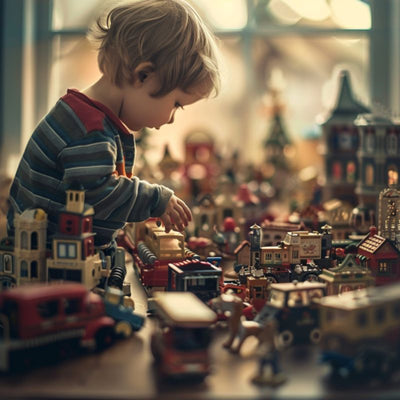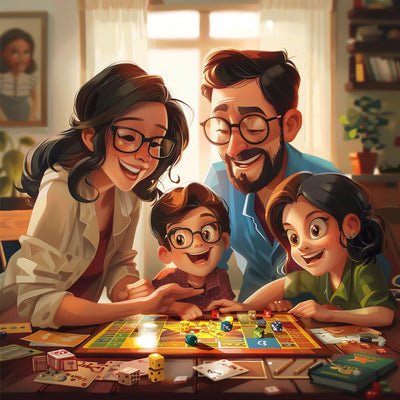Playing games with kids always guarantees a dose of laughter and unexpected moments. As a parent, I'm always on the lookout for fun activities that engage and entertain my children.
One sunny afternoon, I discovered a captivating sea animal matching game tucked away in the toy chest. Eager to create lasting memories, I gathered my two mischievous adventurers, Moon and Sky, for an underwater adventure.
We gathered around the living room table, the game spread out before us. The cards were adorned with vibrant images of dolphins, turtles, sharks, and various other sea creatures. Their excited giggles filled the air as I shuffled the cards and explained the rules.
"Alright, my little explorers," I began, "let's dive into the ocean and find matching sea animals! Are you ready?" They nodded eagerly, their eyes shining with anticipation.
Moon was the first to flip a card, revealing a picture of a cheeky yellow fish. "Look, Mommy! A funny-looking fish!" she exclaimed, her laughter infectious.
As Sky took his turn, he uncovered a card showing a majestic whale. But instead of calling it a whale, he shouted, "Look, it's a gigantic fish with a water fountain on its head!" We burst into laughter, captivated by his creative description.
With each turn, the hilarity continued. Moon found a card with a grinning sea horse, which she affectionately nicknamed "Sir Barks-A-Lot." Sky stumbled upon a card featuring a crab, and he dramatically declared, "Beware! The mighty pincher-monster is here!" We couldn't contain our laughter at his imaginative playfulness.
The game became a whirlwind of laughter and silly remarks. Whenever we found a match, our excitement reached new heights. We celebrated each successful pair with high-fives, cheers, and impromptu victory dances that left us breathless with laughter.
As the game progressed, we couldn't help but create our own silly stories about the sea creatures. The hermit crab became "Mr. Bubbly Bumpkins," the octopus transformed into "Professor Tentacle-Brains," and the squid became "Captain Tickles."
The joy of the game extended beyond finding matches; it was the shared moments of laughter and imagination that made it truly special. We weren't just playing a game; we were creating memories, strengthening our bond, and embracing the joy of being together.
Eventually, the sea animal matching game came to an end. We sat back, still giggling and catching our breath. Looking at each other with twinkling eyes, we knew we had experienced something magical. The game had turned a simple afternoon into a treasure trove of laughter and joy.
As we put the cards away, Moon and Sky begged for more games and more adventures. With smiling hearts, we promised to embark on many more playful journeys together, cherishing the gift of laughter and shared experiences.
Playing the sea animal matching game with Moon and Sky was an unforgettable experience filled with laughter and imaginative play. It reminded me of the magic that unfolds when we let go, embrace silliness, and create precious memories with our children. The game not only entertained us but also strengthened our bond and brought us closer as a family. So, let's dive into the sea of laughter, embrace the joy of playing, and create countless humorous stories that will forever be cherished.
Matching card games have been a popular pastime for generations, captivating young and old alike. These simple yet engaging games offer more than just entertainment. We will explore the numerous benefits of playing matching card games with kids and how they contribute to their cognitive, social, and emotional development.
-
Enhancing Memory Skills: Matching card games are excellent tools for improving memory skills in children. By flipping cards and trying to remember their positions, children exercise their working memory and concentration. As they play repeatedly, they develop strategies to recall card placements, boosting their overall memory capacity and retention abilities.
-
Developing Cognitive Skills: Matching card games promote the development of essential cognitive skills in children. These games require kids to engage in critical thinking, problem-solving, and pattern recognition. They learn to analyze similarities and differences, categorize objects, and make connections between visual cues. Such cognitive abilities are crucial for academic success across various subjects.
-
Stimulating Visual Discrimination: Matching card games sharpen children's visual discrimination skills. They learn to identify similarities and differences in shapes, colors, and patterns. This skill is not only important for playing the game but also for various real-life situations, such as differentiating letters and numbers or identifying objects with similar attributes.
-
Promoting Focus and Concentration: Matching card games encourage children to concentrate and focus on the task at hand. In a world filled with distractions, these games help develop the ability to block out noise and maintain attention. As children strive to find matching pairs, they learn the value of patience, persistence, and sustained mental effort.
-
Encouraging Social Interaction: Playing matching card games provides a platform for social interaction and collaboration among children. Whether played with siblings, friends, or parents, these games foster communication, turn-taking, and sportsmanship. Children learn to follow rules, take turns graciously, and celebrate the successes of others, promoting positive social skills and empathy.
-
Boosting Confidence and Self-Esteem: Success in matching card games can boost a child's confidence and self-esteem. As they improve their skills and make successful matches, they experience a sense of accomplishment. The positive reinforcement received during the game helps children build resilience and develop a growth mindset, encouraging them to take on new challenges with confidence.
-
Encouraging Cognitive Flexibility: Matching card games require children to be adaptable and mentally flexible. As the game progresses, they must continuously update their mental models, adapt strategies, and shift focus between different cards. This cognitive flexibility helps children become more adaptable in other areas of life, enabling them to navigate changes and solve problems effectively.
-
Cultivating Fine Motor Skills: The physical act of flipping and manipulating cards in matching games helps children develop their fine motor skills. They refine their hand-eye coordination, finger dexterity, and manual control as they manipulate and place the cards in precise positions. These skills are crucial for tasks like writing, drawing, and manipulating objects in everyday life.
Matching card games offer a multitude of benefits for children's cognitive, social, and emotional development. From enhancing memory skills and cognitive abilities to promoting social interaction and boosting self-esteem, these games provide a fun and engaging way for children to learn and grow. So, grab a deck of cards, gather the family, and embark on a journey of learning, laughter, and development with matching card games.





